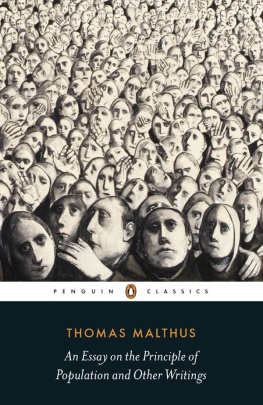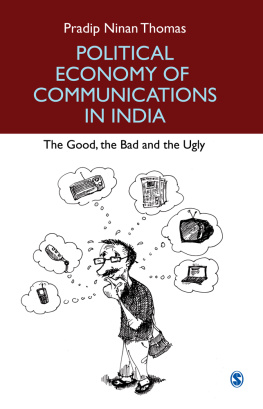Thomas Robert Malthus - Definitions in Political Economy
Here you can read online Thomas Robert Malthus - Definitions in Political Economy full text of the book (entire story) in english for free. Download pdf and epub, get meaning, cover and reviews about this ebook. year: 2016, genre: Politics. Description of the work, (preface) as well as reviews are available. Best literature library LitArk.com created for fans of good reading and offers a wide selection of genres:
Romance novel
Science fiction
Adventure
Detective
Science
History
Home and family
Prose
Art
Politics
Computer
Non-fiction
Religion
Business
Children
Humor
Choose a favorite category and find really read worthwhile books. Enjoy immersion in the world of imagination, feel the emotions of the characters or learn something new for yourself, make an fascinating discovery.

- Book:Definitions in Political Economy
- Author:
- Genre:
- Year:2016
- Rating:5 / 5
- Favourites:Add to favourites
- Your mark:
- 100
- 1
- 2
- 3
- 4
- 5
Definitions in Political Economy: summary, description and annotation
We offer to read an annotation, description, summary or preface (depends on what the author of the book "Definitions in Political Economy" wrote himself). If you haven't found the necessary information about the book — write in the comments, we will try to find it.
Definitions in Political Economy — read online for free the complete book (whole text) full work
Below is the text of the book, divided by pages. System saving the place of the last page read, allows you to conveniently read the book "Definitions in Political Economy" online for free, without having to search again every time where you left off. Put a bookmark, and you can go to the page where you finished reading at any time.
Font size:
Interval:
Bookmark:

IN
POLITICAL ECONOMY,
PRECEDED BY
AN INQUIRY INTO THE RULES WHICH OUGHT TO GUIDE POLITICAL ECONOMISTS IN THE DEFINITION AND USE OF THEIR TERMS;
WITH REMARKS
ON THE DEVIATION FROM THESE RULES IN THEIR WRITINGS.
| PAGE | |
|---|---|
| Preface | |
| Chapter I. | |
| Rules for the Definition and Application of Terms in Political Economy | |
| Chapter II. | |
| On the Definition of Wealth by the French Economists | |
| Chapter III. | |
| On the Definition and Application of Terms by Adam Smith | |
| Chapter IV. | |
| Application of the term Utility by M. Say | |
| Chapter V. | |
| On the Definition and Application of Terms by Mr. Ricardo | |
| Chapter VI. | |
| On the Definition and Application of Terms by Mr. Mill, in his Elements of Political Economy. | |
| Chapter VII. | |
| On the Definition and Application of Terms, by Mr. Macculloch, in his Principles of Political Economy. | |
| Chapter VIII. | |
| On the Definition and Use of Terms by the Author of A Critical Dissertation on the Nature, Measure, and Causes of Value. | |
| Chapter IX. | |
| Summary of the Reasons for Adopting the subjoined Definition of the Measure of Value | |
| Chapter X. | |
| Definitions in Political Economy | |
| Chapter XI. | |
| Remarks on the Definitions |
RULES FOR THE DEFINITION AND APPLICATION OF TERMS IN POLITICAL ECONOMY.
Font size:
Interval:
Bookmark:
Similar books «Definitions in Political Economy»
Look at similar books to Definitions in Political Economy. We have selected literature similar in name and meaning in the hope of providing readers with more options to find new, interesting, not yet read works.
Discussion, reviews of the book Definitions in Political Economy and just readers' own opinions. Leave your comments, write what you think about the work, its meaning or the main characters. Specify what exactly you liked and what you didn't like, and why you think so.






